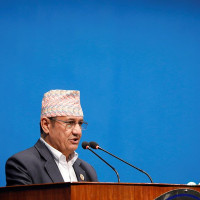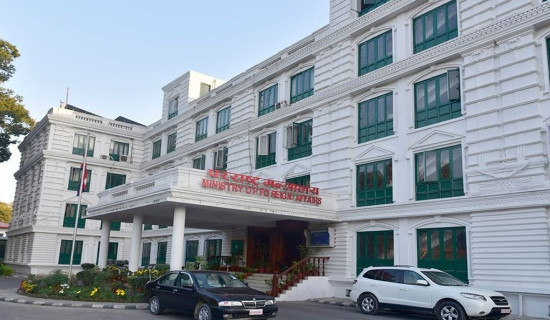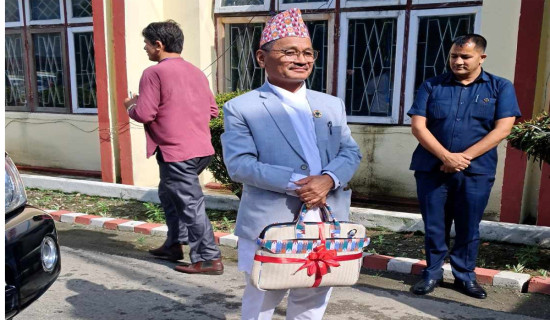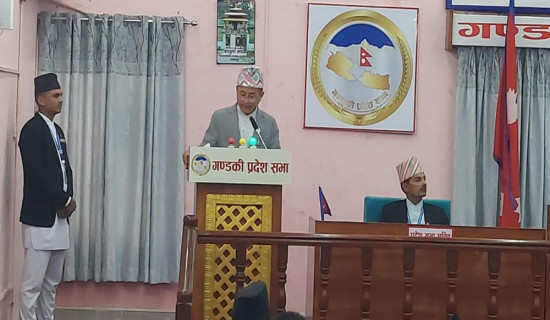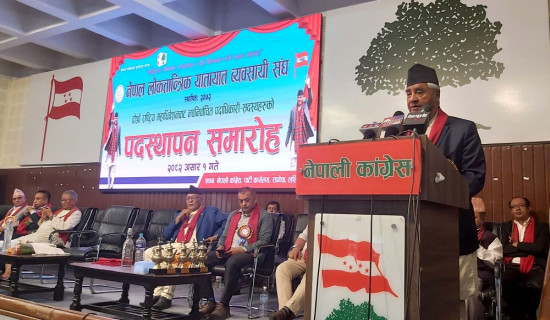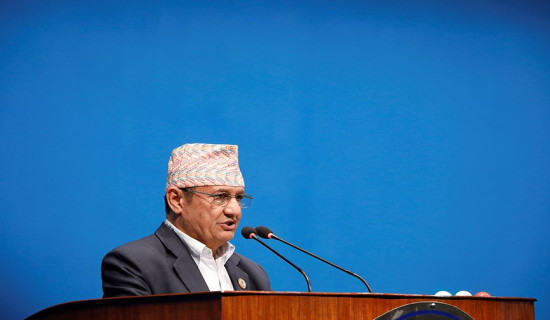- Monday, 16 June 2025
Lawmakers for early formulation of laws on federalism
Kathmandu, June 15: The lawmakers from various political parties have underscored the urgency of laws to implement federalism effectively.
During a discussion organized by the Association of Community Radio Broadcasters (ACORAB) here Sunday, they argued the more the law making delays, the more implementation of federalism prolongs.
Lawmaker from the Communist Party of Nepal (Maoist Centre), Mahendra Bahadur Shahi, urged both the government and parliament to intensify drafting laws related to civil service, police and school education because these were directly related to enforcement of federalism. He expressed worry why the federal government was not devolving the rights owed to the province and local levels. He said, “While the transport-related rights are exercised by the provincial governments, it is sheer interference of the federal government to issue ruling on ride-sharing.”
He also advocated for the directly elected President to maintain political stability in the country, while the government could be made out of the politics- from among the area experts.
CPN (UML) lawmaker Ishwari Ghatri Magar, however, argued that lawmaking had gained a pace lately and the making of laws for implementing the constitutional provisions was in a final stage.
She admitted that federal government delayed law making, but even the provincial and local governments were not proactive to write laws on their exclusive rights.
National Assembly Member Jayanti Devi Rai shared, “Generally, private bills are not raised and passed. Discussions are not meaningful in absence of ministers. But, once lawmaker becomes minister, he/she has short of time to engage in discussion, thereby delaying law-making.” She further blamed that political party leaders and lawmakers were active more in forming or toppling governments rather than in lawmaking, which has direct bearing on law-making process.
Moreover, Chairperson of the Development, Economic Affairs, and Good Governance Committee, Kamala Panta, expressed worry that although laws should have been drafted within three years of the introduction of constitution, laws to enforce fundamental rights are yet to be enacted even after ten years of having the national charter.
She said, “We handed over right to formulate periodic plans in provinces to the province governments, but failed to hand over budget to them. The government's responsible behaviour is warranted in lawmaking, so is in case of lawmakers." Panta also admitted that the government was focusing more on amendments than preparing new laws.(RSS)




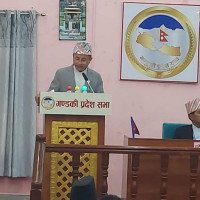
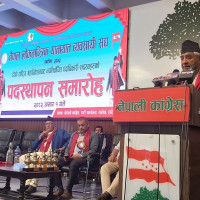
-original-thumb.jpg)

